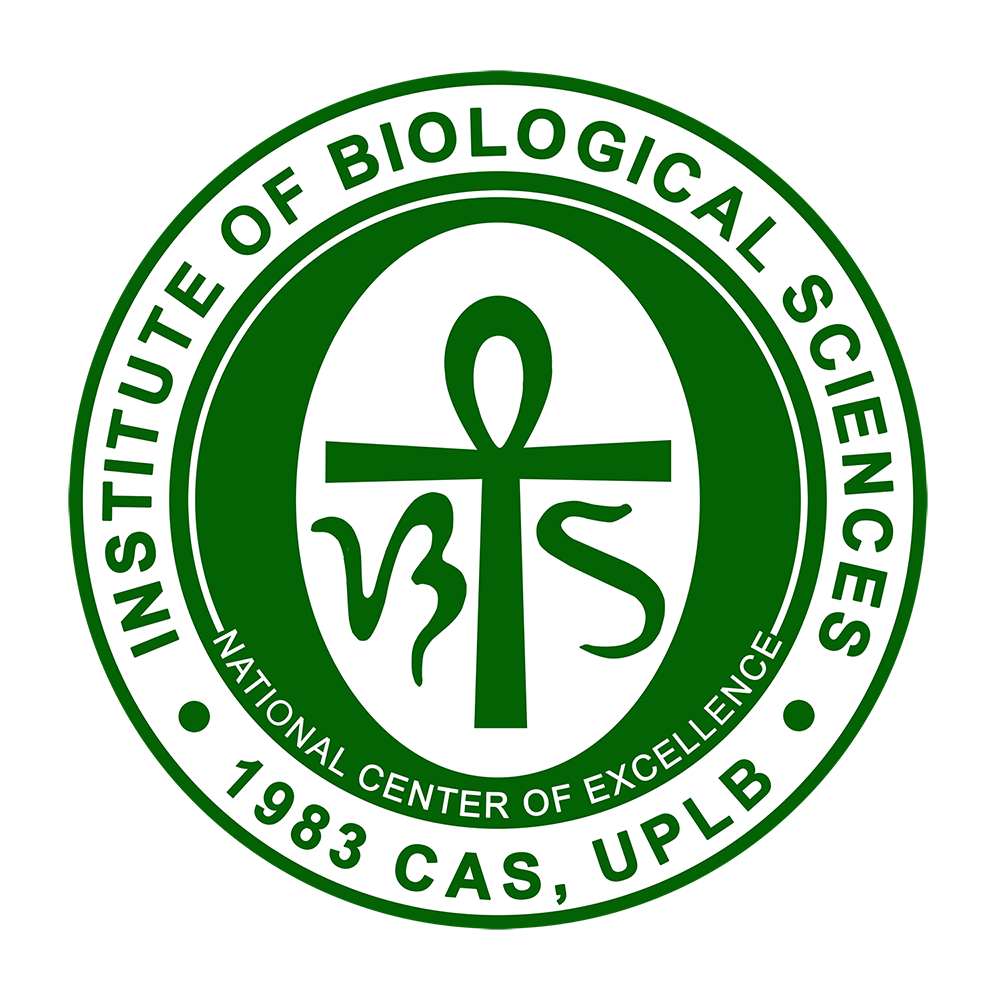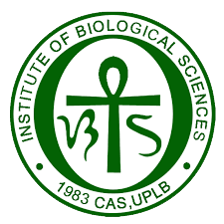IBS Courses
Investigative Biology Laboratory (3)
Integrating concepts inBiology through investigatory approaches. 6 hrs (6 lab). PR. None. (1,2)
Biodiversity (5)
Systematic survey of the diversity of life, with emphasis on functional organization, maintenance and integration, reproduction and development; evolution of the major groups of microorganisms, plants and animals; interrelationships of organisms with the environment. 9 hrs (3 class, 6 lab) PR. BIO 11.1. (1,2)
Genetics (3)
Mechanisms of heredity and variation, cytogenetics, mutation, nature of genes, population genetics, and quantitative genetics; biometrical procedures. 5 hrs (2 class, 3 lab). PR. None (1,2)
Introductory Molecular Biology (3)
Structure, properties, functions and interactions of biomolecules in basic cellular processes, with emphasis on the processes involving the genetic material. 3 hrs (class). PR. BIO 30 and CHEM 160 or CHEM 161. (1,2)
Cell Biology (3)
Nature and function of ultrastructure components and possible relationships to such processes as chemical energy transformations, transport, excitation, movement, and growth. 5 hrs (2 class, 3 lab). PR. BIO 30 and CHEM 160. (1,2)
Principles of Cell and Molecular Biology Techniques (3)
Theoretical bases of standard techniques in cell and molecular biology with emphasis on approaches to research problems on gene expression at the cell and molecular levels. 3 hrs (3 class). PR. BIO 101. (1,2)
Developmental Biology (3)
Molecular and cellular bases of cell determination, differentiation and morphogenesis in relation to multicellularity in plants and animals. 3 hrs (3 class). PR. BIO 120. (1,2)
Intermediate Genetics I (3)
The nature and behavior of the genetic material as expressed in the development of the individual. 3 hrs (class). PR. BIO 30. (1,2)
Intermediate Genetics II (3)
The nature and behavior of the genetic material as expressed in the population. 3 hrs (class). PR. BIO 30. (2)
Cytogenetics (3)
The chromosomal bases of heredity; variations in chromosome structure and number; hybridization; apomixis and chromosomes in sex determination. 5 hrs (2 class, 3 lab). PR. BIO 30. (2)
Introduction to Genomics and Bioinformatics (3)
Structure, organization and function of genomes of selected organisms; techniques in genome analysis and bioinformatics. 3 hrs (3 class). PR. BIO 101. (1,2)
Molecular Genetics (3)
The nature, functions and interactions of molecules in heredity; the molecular basis of certain biological phenomena in relation to the genetic material. 3 hrs (class). PR. BIO 101. (1)
Evolutionary Biology (3)
The basic concepts on the theory of evolution, with emphasis on the processes and mechanisms as revealed in genetics, systematics, ecology, ethology, and historical geology. 3 hrs (class). PR. BIO 30. (1,2)
Principles of Systematic Biology (3)
The concept of species and the higher taxa and categories in plants, animals and microorganisms; individual and geographic variation; taxonomic characters, identification, classification; biological nomenclature. 3 hrs (class). PR. BIO 14 and BIO 30. (1)
Ecology (4)
Organisms, populations, communities, ecosystems, and the biosphere in relation to changes on earth through time. 6 hrs (3 class, 3 lab). PR. None. (1,2)
Environmental Management (3)
Principles of environmental management; technological development and activities affecting the environment and pertinent case studies. 3 hrs (class). PR. BIO 150 or COI. (2)
Biogeography (3)
Principles and applications of biogeography. 3 hrs (3 class). PR. BIO 150. (1)
Biology of Pollution (3)
Interactions of biota with polluted environments. 5 hrs (2 class, 3 lab). PR. BIO 150 or COI. (1)
Research Methods in Biological Sciences (3)
Methods and approaches in conducting and communicating researches in the biological sciences. 5 hrs (2 class, 3 lab). PR. STAT 164. (1,2)
Practicum (3)
Principles and applications of biogeography. Minimum of 150 hours. PR. COI*. (M)*COI:
- Cell and Molecular Biology: BIO 101
- Ecology: BIO 151
- Genetics: BIO130a and BIO 130b
- Microbiology: MCB 101 and MCB 180
- Plant Biology: BOT 20 and BOT 110
- Systematics: BOT 140 and ZOO 140
- Wildlife Biology: WLDL 101
- Zoology: ZOO 113
Undergraduate Seminar in Biology (1)
PR. Senior standing or COI. (1,2)
Undergraduate Seminar in Biology (1)
PR. Senior standing or COI. (1,2)
University Botany (3)
Analysis of processes and mechanisms shaping plant life; and economic importance of plants. 5 hrs (2 class, 3 lab). PR. None. (1,2)
Fundamentals of Plant Physiology (3)
Photosynthesis, respiration, nutrition, water relations, transport of materials, and growth of plants. 5 hrs (2 class, 3 lab). PR. None. (1,2)
Morphology and Anatomy of Plants (3)
Structure, function, development, adaptation, and phylogenetic relationships of vascular plants. 5 hrs (2 class, 3 lab). PR. None. (1)
Systematics of the Spermatophytes (3)
The identification, nomenclature, and classification of the principal families of seedplants, with emphasis on their geographic distribution and economic importance. 7 hrs (1 class, 6 lab). PR. COI. (1,2)
Plant Ecology (3)
Principles of plant environment interactions in relation to distribution, structure and functioning of plant communities. 5 hrs (2 class, 3 lab). PR. BOT 14 or COI. (2)
Phytogeography (3)
Principles, patterns, causes, and barriers of plant distribution and migration on land evolution of world vegetations and floristic provinces. 3 hrs (class). PR. BOT 150 or COI. (2)
Biology and Applications of Microorganisms (3)
Biology of major groups of microorganisms, with emphasis on prokaryotes, and an introduction to applied microbiology. 5 hrs (2 class, 3 lab). (1,2)
Microbial Identification Techniques (3)
Principles and techniques for the morphological, cultural, and physiological characterization of selected groups of microorganisms. 7 hrs (1 class, 6 lab). PR. MCB 11. (1,2)
General Virology (3)
The physical, chemical, and biological properties of plant, animal, and bacterial viruses. 3 hrs (class). PR. MCB 11. (1,2)
Introductory Medical Microbiology (3)
The role and control of medically important microorganisms in human disease development. 3 hrs (class). PR. MCB 11. (1,2)
Microbial Physiology (3)
Physiological processes in microorganisms including a study of structure, energy production, macromolecular biosynthesis, nutrition, and growth. 3 hrs (class). PR. MCB 11 and CHEM 160. (1,2)
Microbial Genetics (4)
The principles of heredity in microbial systems and their applications in microbiology and molecular biology. 8 hrs (2 class, 6 lab). PR. MCB 101 and BIO 101 or COI. (1,2)
Microbial Ecology (3)
An introduction to the basic principles of microbial ecology; interrelationships of bacteria, fungi, algae, and protozoa in natural systems. 5 hrs (2 class, 3 lab). PR. MCB 11. (1,2)
Introductory Food Microbiology (3)
An introduction to the microbiological aspects of food processing, preservation, spoilage and quality control; food-borne microorganisms of public health importance. 5 hrs (2 class, 3 lab). PR. MCB 11. (1,2)
Dairy Microbiology (3)
Microorganisms in milk and milk products, their growth, destruction and utilization, and methods in microbiological quality control. 5 hrs (2 class, 3 lab). PR. MCB 11. (2)
Industrial Microbiology (3)
Microorganisms, principles, and processes involved in industrial fermentation. 3 hrs (class). PR. MCB 11 and CHEM 160. (1,2)
Industrial Microbiology Laboratory (2)
Techniques in industrial fermentation. 6 hrs (lab). PR. MCB 101 and MCB 182. (can be taken concurrently with MCB 182). (1)
Introduction to Philippine Wildlife (3)
Survey of Philippine flora and fauna; biology and ecology of selected species. 5 hrs (2 class, 3 lab). PR. None. (1)
Wildlife Ecology (3)
Ecological factors that influence abundance in the tropical ecosystems. 3 hrs (class). PR. WLDL 101. (2)
University Zoology (3)
Integrative analysis of processes and mechanisms shaping animal life. 5 hrs (2 class, 3 lab). PR. None. (1,2)
Comparative Vertebrate Anatomy (5)
Comparative and phylogenetic study of vertebrate organ systems; their development, structures, and functions. 9 hrs (3 class, 6 lab). PR. ZOO 14. (1,2)
Animal Histology (3)
Detailed study of types, structure, and functions of vertebrate tissues, selected glands and organs; principle of histochemistry. 5 hrs (2 class, 3 lab). PR. ZOO 113. (1,2)
Developmental Zoology (3)
Patterns of growth, differentiation and morphogenesis from molecule to organism; control mechanisms of development; animal life cycles. 5 hrs (2 class, 3 lab). PR. BIO 101. (1,2)
Animal Physiology (5)
Mechanisms involved in the functional processes of animals; sources of energy; its distribution and utilization; environmental relations; nervous integration and animal activity; reproduction and development. 9 hrs (3 class, 6 lab). PR. ZOO 113 and CHEM 160. (1,2)
Animal Taxonomy (3)
Principles of animal taxonomy; taxonomic literature and catalogs, with special reference to Philippine fauna. 5 hrs (2 class, 3 lab). PR. None. (1,2)
Invertebrate Zoology (3)
Systematics, ecology, and evolutionary relationships of invertebrates. 5 hrs (2 class, 3 lab). PR. None. (1,2)
Animal Ecology (3)
Fundamental factors of the environment, population dynamics, community concepts and principal habitats of animals. 7 hrs (1 class, 6 lab). PR. None. (1,2)
Introduction to Parasitology (3)
Fundamental principles of parasitology, with reference to man and other animals. 5 hrs (2 class, 3 lab). PR. None. (1,2)
Introduction to Aquaculture (3)
Basic principles and practices of aquaculture. 3 hrs (class). PR. None. (1,2)
Special Topics (1-3)
(May be taken twice provided that the total number of units to be credited to the student’s program will not exceed 4 units.) (1,2)

